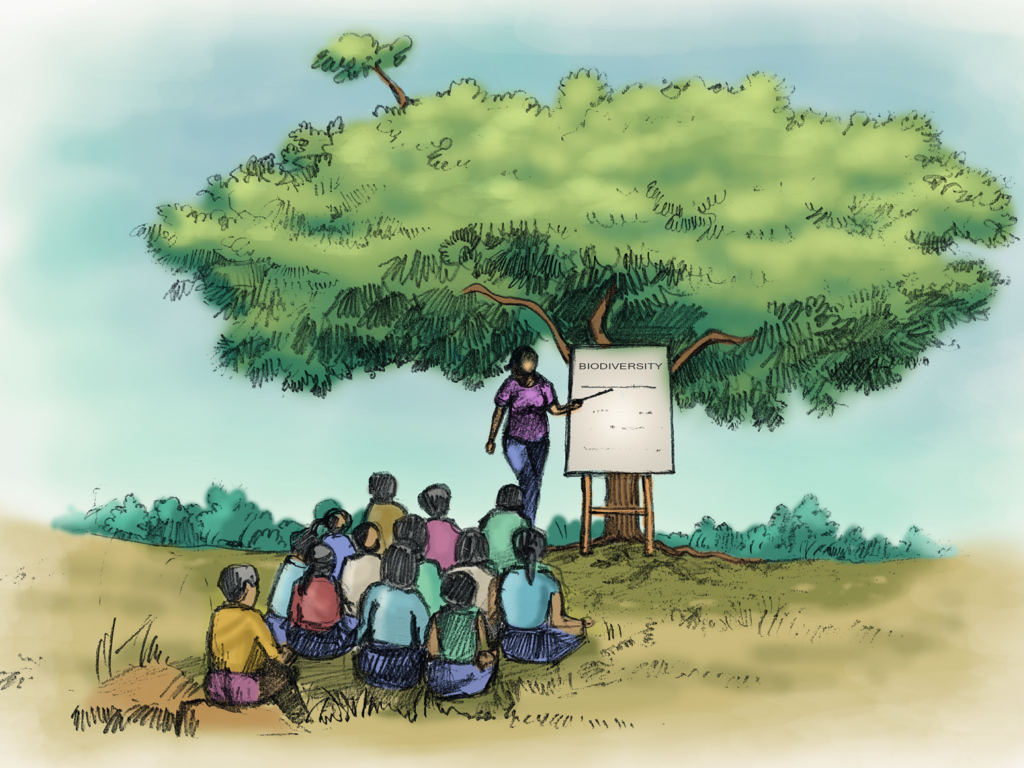
UKALI recognizes that improving the knowledge and awareness of local communities about the biodiversity conservation is essential for long-term conservation success. As such, the project places great importance on conservation education initiatives that aim to build connections and increase awareness among local communities.
We are implementing a range of conservation education program, including podcast, radio program, information boards, conservation documentaries, and school level eco-club program. These programs are designed to improve local knowledge about the importance of biodiversity conservation and foster a sense of trust and participation in the common goal of promoting community-based biodiversity conservation.
The Upper Karnali Landscape is the largest continuous non-protected area in Nepal, covering an area of about 6000 sq. km. It is remote and rich in biodiversity, providing an important basis for the rural economy. Agriculture is subsistence-based and supported by livestock husbandry since only 1% of the total land is suitable for farming. As a result, local communities are highly dependent on biodiversity for their livelihoods and income generation.